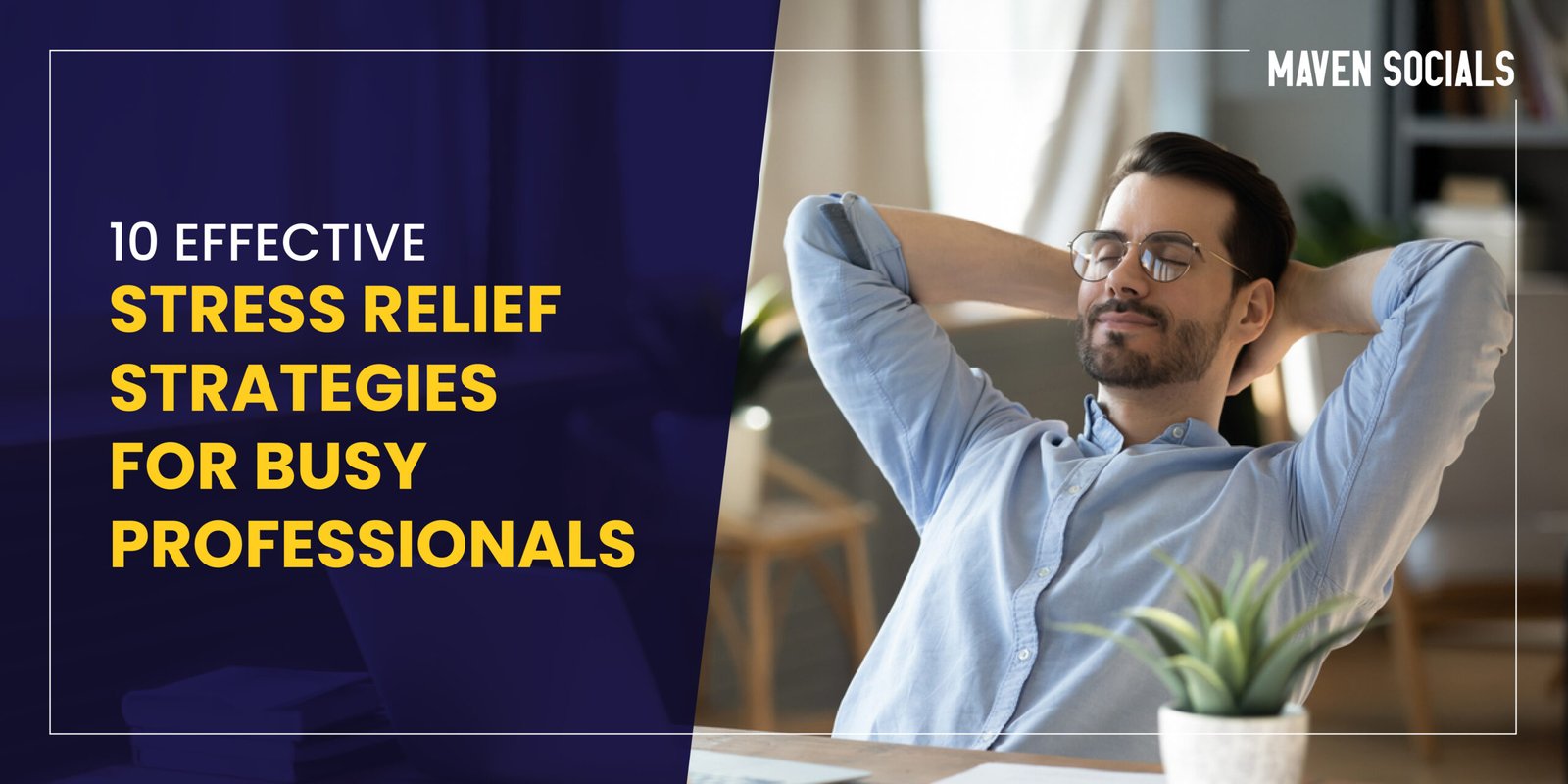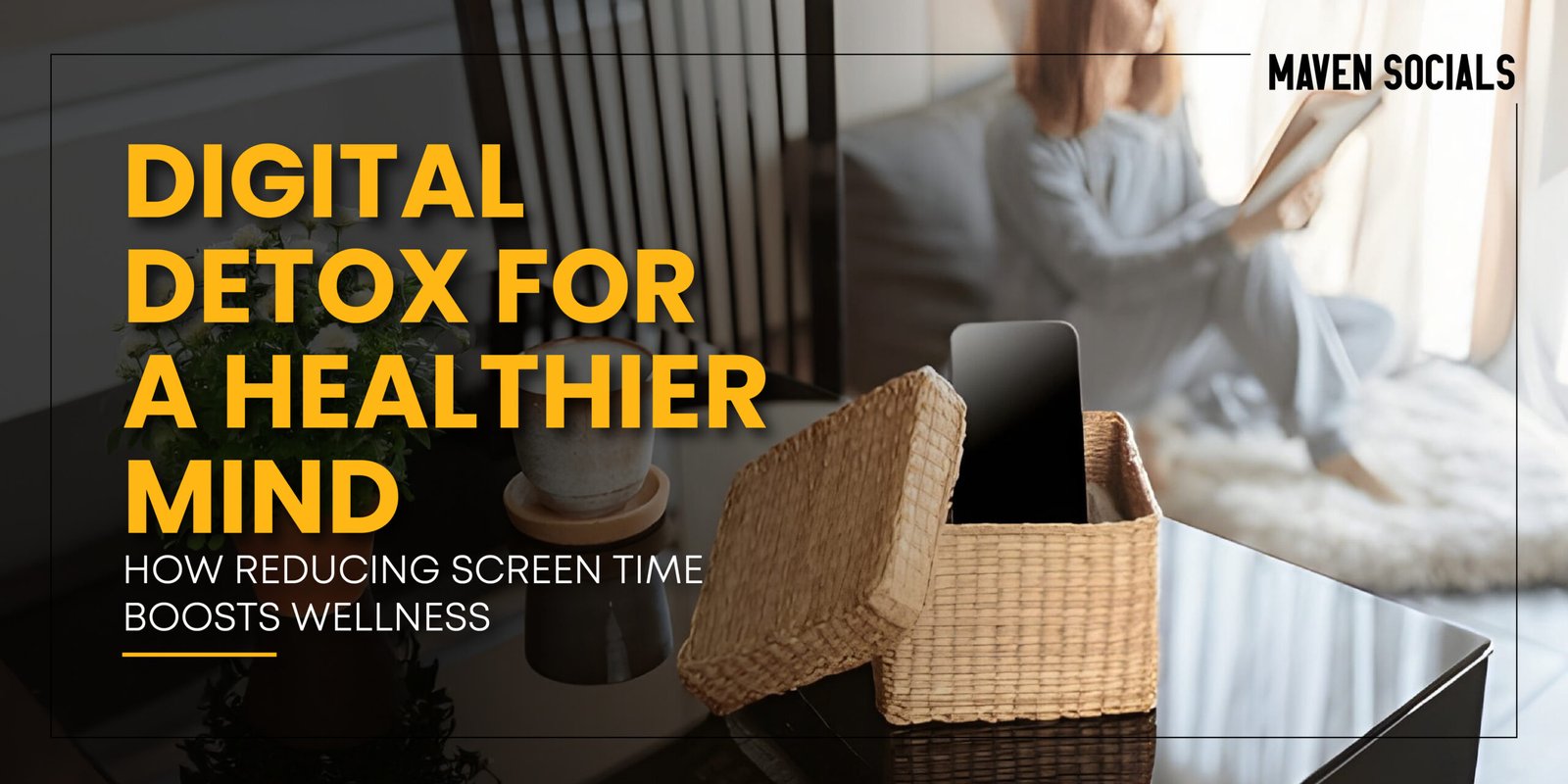In today’s fast-paced world, stress has become a part of daily life—especially for busy professionals juggling deadlines, meetings, personal commitments, and endless to-do lists.
While some stress can motivate productivity, chronic stress can lead to burnout, reduced efficiency, and even health issues. The good news? You don’t have to rely on medication to feel better.
In this blog, we’ll explore 10 effective strategies to relieve stress and anxiety instantly, even on your busiest days. Whether you’re stuck in traffic, preparing for a presentation, or just overwhelmed by your inbox, these tips can help you regain calm, focus, and control—naturally.
1. Practice Deep Breathing Anywhere, Anytime
One of the most effective and accessible ways to relieve stress without medication is deep breathing. Deep, controlled breathing signals your brain to relax, slowing your heart rate and calming your nervous system.
Try this: Inhale deeply through your nose for four seconds, hold for four seconds, and exhale slowly through your mouth for six seconds. Repeat this cycle for 2–3 minutes.
Quick Tip: Practice this during a stressful meeting or right before a big presentation to relieve stress and anxiety instantly.
2. Take Microbreaks to Recharge
Professionals often underestimate the power of small breaks. Even a 2–5 minute pause can do wonders for your mental well-being and focus.
Try this: Step away from your screen, stretch, drink a glass of water, or just look out the window. Microbreaks help you reset and prevent mental fatigue.
Why it works: Microbreaks improve focus and creativity while reducing the feeling of overwhelm.
3. Prioritize Your Tasks with the “3-Most-Important” Rule
Too many tasks can create mental chaos. Instead of trying to do everything at once, pick the three most important tasks for the day.
This helps reduce decision fatigue and provides a clear sense of accomplishment, which naturally lowers stress levels.
Bonus: When your mind feels organized, it becomes easier to relieve stress and anxiety instantly.
4. Listen to Soothing Music or Nature Sounds
Music has the power to shift your mood almost instantly. Classical music, nature sounds, or lo-fi beats can create a calm working environment.
Try this: Plug in your earphones during a stressful work session and play a calming playlist. Platforms like Spotify or YouTube have great “Focus” and “Relax” playlists designed for productivity and stress relief.
Pro tip: Listening to soothing music during your commute or breaks is one of the easiest 10 ways to relieve stress without much effort.5. Get Moving – Even for Just 10 Minutes
Physical movement, no matter how short, releases endorphins—your brain’s natural feel-good chemicals.
Try this: A brisk walk, stair climbing, or even desk stretches can boost circulation and lift your mood.
Walking meetings or standing phone calls can help you stay productive while relieving stress without medication.
6. Practice Mindfulness or Meditation Daily
Mindfulness doesn’t require hours of silence. Even 5–10 minutes of focused breathing or guided meditation can make a significant difference in your stress levels.
Apps like: Headspace, Calm, and Insight Timer offer guided sessions tailored to professionals.
Why it helps: Meditation activates your parasympathetic nervous system, helping you relieve stress and anxiety instantly.
7. Stay Hydrated and Eat Mindfully
Dehydration and poor nutrition can worsen stress symptoms. When you’re hungry or dehydrated, your brain receives distress signals that can mimic anxiety.
Try this: Keep a water bottle at your desk and snack on brain-boosting foods like nuts, berries, or yogurt.
What to avoid: Too much caffeine or sugary snacks, which can cause energy crashes and irritability.
One of the underrated 10 ways to relieve stress is simply treating your body well throughout the workday.
8. Declutter Your Workspace
A messy workspace often mirrors a cluttered mind. Organizing your desk can provide instant mental clarity and lower your stress levels.
- Try this: At the start or end of each day, take 5 minutes to sort papers, clear your desktop, and organize your digital folders.
- Why it works: A tidy space promotes focus and creates a calmer work atmosphere—making it easier to relieve stress without medication.
9. Practice Gratitude and Positive Self-Talk
Stress often stems from a negative internal dialogue. Shifting your mindset to gratitude and positivity can help counteract this.
- Try this: Write down 3 things you’re grateful for at the end of each workday. Or, practice affirmations like, “I am capable,” or “This moment will pass.”
- Why it helps: Gratitude rewires your brain to focus on the positive, reducing cortisol (the stress hormone).
10. Set Clear Work-Life Boundaries
Professionals often blur the lines between work and personal time, leading to chronic stress and burnout.
- Try this: Define a clear end to your workday. Turn off notifications, avoid checking emails after hours, and make time for non-work activities that bring you joy.
- Examples of de-stress activities:Cooking, reading, talking to a friend, or enjoying a hobby. These create a buffer between work stress and personal peace.
Setting boundaries is one of the most effective 10 ways to relieve stress, especially in a hyper-connected world.
Final Thoughts
You don’t need to overhaul your lifestyle or rely on medication to find peace amidst your professional chaos.
These 10 effective strategies to relieve stress and anxiety instantly are easy to implement and fit seamlessly into any busy schedule.
From deep breathing and mindfulness to microbreaks and gratitude journaling, these techniques allow you to relieve stress without medication—naturally and sustainably.
Remember: You can’t pour from an empty cup. Taking a few moments each day to care for your mental health will not only make you more productive but also happier and more fulfilled.
Frequently Asked Questions
1. Can I really relieve stress and anxiety instantly with these methods?
Yes! Techniques like deep breathing, quick walks, or mindfulness can offer immediate relief—even if temporary. The key is consistency.
2. Are these tips backed by science?
Absolutely. Most methods like mindfulness, physical movement, and gratitude journaling are supported by research in psychology and neuroscience.
3. Can I combine multiple techniques?
Yes. For example, listen to calming music during a microbreak, or pair deep breathing with a gratitude exercise.













